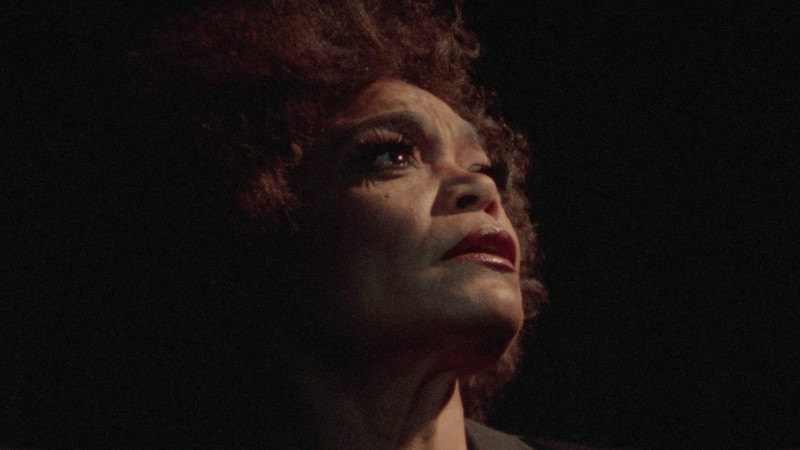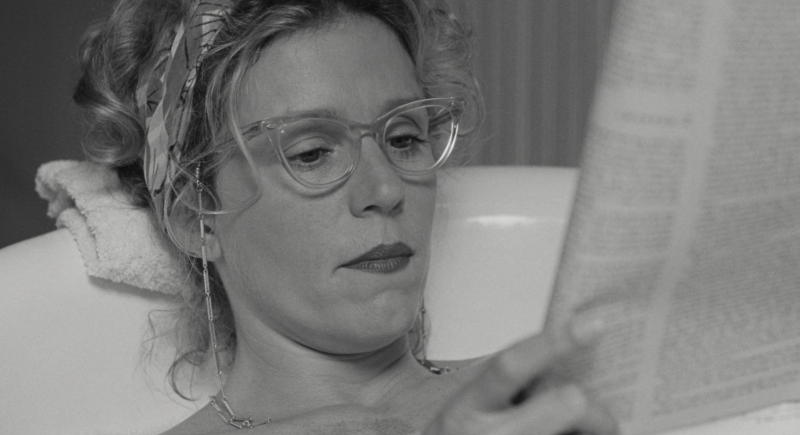“Ti amo”: An Exchange of Letters

Ingrid Bergman likely wrote her now legendary letter to Roberto Rossellini, expressing her desire to work with him, sometime in 1947. Not knowing where to reach the filmmaker, she apparently didn’t send the letter immediately; when she eventually did so, it was care of his studio, the Minerva Film Corporation in Rome. According to Rossellini, someone at the studio saved the letter from a pile of correspondence that was being burned as trash, read it, and called the director to tell him about it. Rossellini was on the outs with Minerva at the time, though, and refused to speak to the man, so he didn’t receive the letter until May 8, 1948, his birthday. He responded first with a short, ecstatic telegram: “I just received with great emotion your letter, which happens to arrive on the anniversary of my birthday as the most precious gift. It is absolutely true that I dreamed to make a film with you . . .” A brief synopsis for a Stromboli-like project followed, and finally, in November, a full-fledged proposition to make that film together. What follows is the text of Bergman’s initial letter and Rossellini’s proposal.
Dear Mr. Rossellini,
I saw your films Open City and Paisan, and enjoyed them very much. If you need a Swedish actress who speaks English very well, who has not forgotten her German, who is not very understandable in French, and who in Italian knows only “ti amo,” I am ready to come and make a film with you.
Ingrid Bergman
Dear Mrs. Bergman,
I have waited a long time before writing, because I wanted to make sure what I was going to propose to you. But first of all I must say that my way of working is extremely personal. I do not prepare a scenario, which, I think terribly limits the scope of work. Of course I start out with very precise ideas and a mixture of dialogues and intentions which as things go on, I select and improve. Having said so much, I must indeed make you aware of the extraordinary excitement which the mere prospect of having the possibility to work with you, procures me.
Some time ago . . . I think it was at the end of February last, I was traveling by car along the Sabine (a region north of Rome). Near the source of the Farfa an unusual scene called my attention. In a field surrounded by a tall barbed-wire fence, several women were turning round just like mild lambs in a pasture. I drew near and understood they were foreign women: Yugoslavs, Polish, Rumanians, Greek, Germans, Latvians, Lithuanians, Hungarians. Driven away from their native countries by the war, they had wandered over half Europe, known the horror of concentration camps, compulsory work and night plunder. They had been the easy prey of the soldiers of twenty different nations. Now parked up by the police, they lived in this camp awaiting their return home.
A guard ordered me to go away. One must not speak to these undesirable women. At the further end of the field, behind the barbed wires, far away from the others, a woman was looking at me, alone, fair, all dressed in black. Heeding not the calls of the guards, I drew nearer. She only knew a few words of Italian and as she pronounced them, the very effort gave a rosy tint to her cheeks. She was from Latvia. In her clear eyes, one could read a mute intense despair. I put my hand through the barbed wires and she seized my arm, just like a shipwrecked person would clutch at a floating board. The guard drew near, quite menacing. I got back to my car.
The remembrance of this woman haunted me. I succeeded in obtaining authorization to visit the camp. She was no longer there. The Commander told me she had run away. The other women told me she had gone away with a soldier. They would have married and, with him, she could have remained in Italy. He was from the Lipari Islands.
Shall we go together and look for her? Shall we together visualize her life in the little village near Stromboli, where the soldier took her? Very probably, you do not know the Lipari Islands: in fact very few Italians know them. They earned a sad fame during fascism, because it is there that the enemies of the Fascist Government were confined. There are seven volcanoes in the Tyrrhenian Sea, north of Sicily. One of them, the Stromboli, is continually active. At the foot of the volcano, in a bay, springs up the little village. A few white houses, all cracked by the earthquakes. The inhabitants make a living out of fishing and the little they can pluck up from the barren land.
I tried to imagine the life of the Latvian girl, so tall, so fair, in this island of fire and ashes, amidst the fishermen, small and swarthy, amongst the women with the glowing eyes, pale and deformed by childbirth, with no means to communicate with these people of Phoenician habits, who speak a rough dialect, all mixed up with Greek words, and with no means to communicate with him, with the man she got hold of at the camp of Farfa. Having looked into each other’s eyes, they had found out their souls. She, in these glowing, intelligent, swift eyes of his, had discovered a tormented, simple, strong, tender man.
She followed this man, being certain that she had found an uncommon creature, a savior, a refuge and a protection after so many years of anguish and beastly life, and she would have had the joy to remain in Italy, this mild and green land where both man and nature are to a human scale.
But instead she is stranded in this savage island, all shaken up by the vomiting volcano, and where the earth is so dark and the sea looks like mud saturated with sulphur. And the man lives beside her and loves her with a kind of savage fury, is just like an animal not knowing how to struggle for life and accepting placidly to live in deepest misery.
Even the God that the people worship seems different from hers. How could the austere Lutheran God she used to pray to, when a child in the frigid churches of her native country, possibly stand comparison with these numerous saints of various hues?
The woman tries to rebel and tear herself away from the obsession. But on all sides, the sea bars the way and there is no possible escape. Frantic with despair, unable to withstand it any longer, she yet entertains an ultimate hope of a miracle that will save her—not realizing that a profound change is already operating within herself.
Suddenly the woman understands the value of the eternal truth which rules human lives; she understands the mighty power of he who possesses nothing, this extraordinary strength which procures complete freedom. In reality she becomes another Saint Francis. An intense feeling of joy springs out from her heart, an immense joy of living.
I do not know if in this letter, I have been able to express the fullness of my meaning. I know it is difficult to give concrete meaning to ideas and sensations which can only receive life through imagination.
To relate, I must see: Cinema relates with the camera, but I am certain, I feel, that with you near me, I could give life to a human creature who, following hard and bitter experiences, finds peace at last and complete freedom from all selfishness. That being the only true happiness which has ever been conceded to mankind, making life more simple and nearer to creation.
Could you possibly come to Europe? I could invite you for a trip to Italy and we could go over this thing at leisure? Would you like me to go in for this film? When? What do you think of it? Excuse me for all these questions but I could go on questioning you forever.
Pray believe in my enthusiasm.
Yours, Roberto Rossellini






